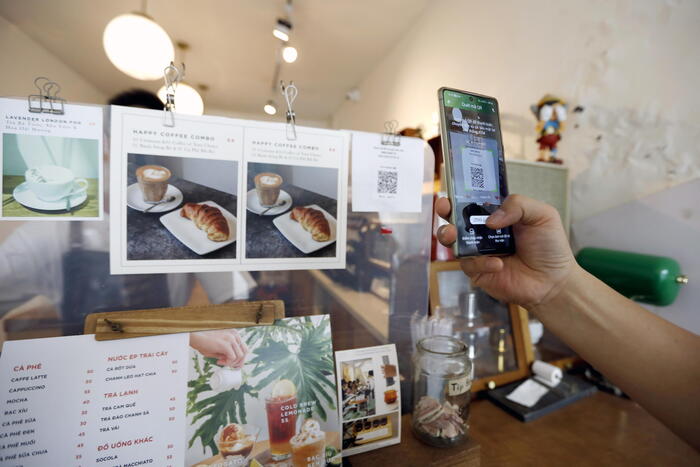Loneliness, sadness, difficulty, fear, danger .... According to the latest Cetelem Observatory, which annually assesses changes in consumption in some fifteen European countries, the French are clearly feeling the impact of the rise of new doped daily practices. by the Covid crisis.
According to the results of this questionnaire conducted at the end of 2020, the terms associated by the French with a contactless life (teleworking, online shopping, distance school, contactless payment, medical consultation by interposed screens, etc.) are mostly negative (52 %).
Ditto in Europe where 70% of respondents have used at least one negative word to qualify these new ways of living for a year.
The “
practicality
” and “
ease
” brought by these technologies, in a life where social interactions are slowed down, thus come far behind the unpleasant feeling of being “
alone
” or under “
surveillance
”.
But this reaction is not unanimous in Europe.
Read also: The fatigue of private office workers: teleworking is (a bit) hell
“
Contactless life is not lived in the same way everywhere,
” notes Flavien Neuvy, the director of the Observatory who surveyed on this subject in early December nearly 15,000 people in 15 countries.
If the English, the Spanish or the Germans say that they like these new ways of communicating or working (over 50%), the French are more than 60% to say that they undergo them rather than not them. choose.
“
This feeling is obviously linked to the crisis and to the context of restrictions which are contributing to their rise,”
explains Flavien Neuvy.
Contactless is a daily reality for the overwhelming majority of Europeans, but in the end, only 40% believe they really choose these developments
”.
Better accepted
“
mixed
”
solutions
Aware that some of these new lifestyles have no return, the French therefore judge (77%) that relations between people have deteriorated.
Whether for family or romantic ties, solidarity, curiosity, economy or self-confidence, these changes in lifestyle are perceived as harmful.
Instead of working from home or remotely, they often prefer “
mixed
”
solutions, in
particular for their daily professional life, or their requirements at the doctor's office.
Such as the introduction of two or three days of teleworking per week, or the choice of remote consultations for monitoring visits.
"When the restaurants reopen, the coffee that will be taken on the terrace will certainly not have the same flavor"
Flavien Neuvy, director of Observatoire Cetelem
The backlash from this widespread malaise could have a positive impact on the economy as the tunnel exit approaches.
“
We feel a real lack and a pain not to have a normal family life.
Even if the horizon of the sanitary thinning remains uncertain, we can seriously anticipate a catch-up effect in travel, cinemas, outings, restaurants,
estimates Flavien Neuvy.
When the restaurants reopen, the coffee that will be taken on the terrace will certainly not have the same flavor
”.
Tourism and leisure at the top of spending intentions
If the intentions to consume more remained at half mast in France at the end of 2020 (-6% compared to the end of 2019), tourism and leisure are also still at the top of the consumption items envisaged by the French.
A recent questionnaire conducted by the same observatory, on the reasons which push the French to be vaccinated, confirms this observation.
Half of French people want to be immunized to see their loved ones in complete safety, but also to go back to bars and restaurants (33%), travel (32%) or do cultural activities (25%).
“
It won't make up for everything that was lost during the long months of closure, but we will be doing all of these activities more often than before.
In the end, we can expect that the way out of the crisis will entail spending part of the savings, the rest remaining as precautionary savings
, ”the pollster concludes.
With 200 billion euros estimated in this crisis wool sock, the rebound could be significant.
According to the Banque de France, the French economy is expected to rebound by 5% this year, after falling more than 8% in 2020.















